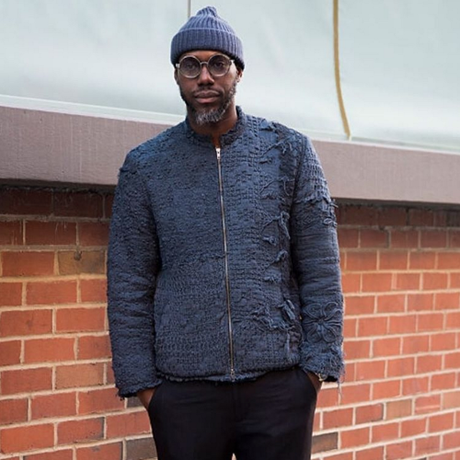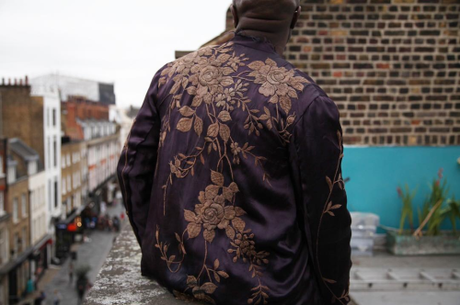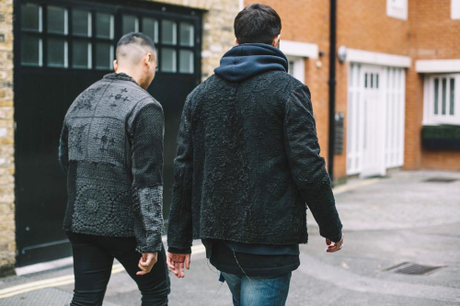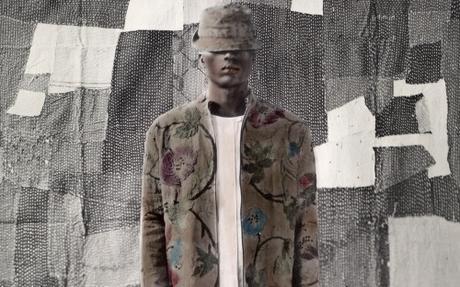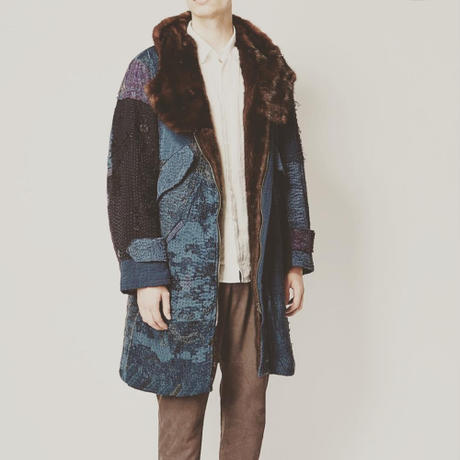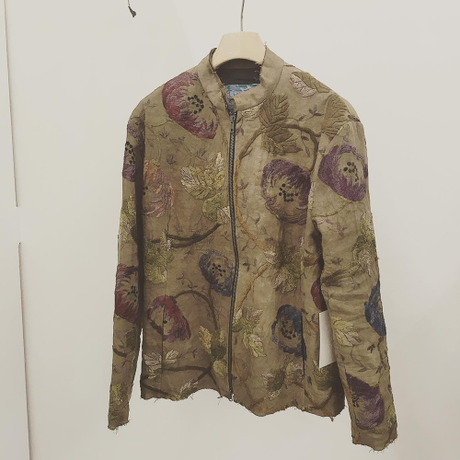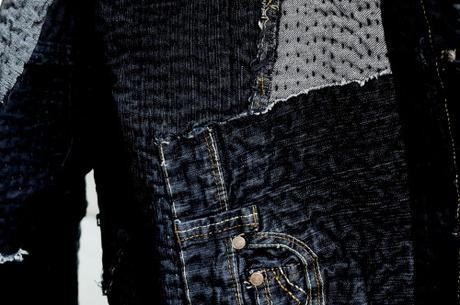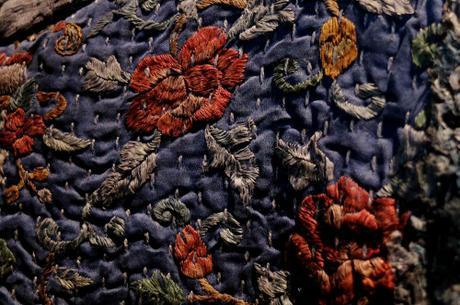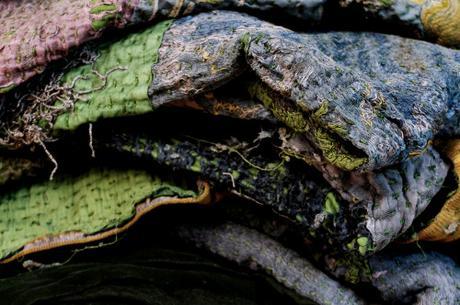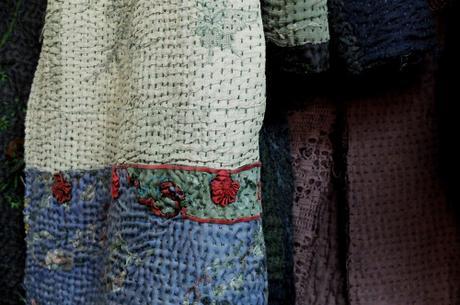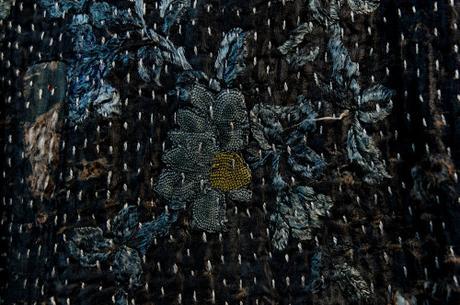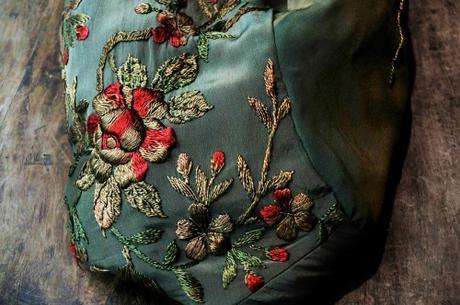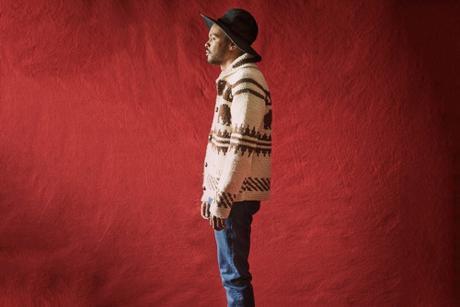
I love finding new and interesting brands. And luckily with fashion, the pace is fast enough for there always to be something exciting around the corner. For the last two years, I’ve been doing these posts on new brands I’m watching – and with every post, the number of companies I want to talk about seems to grow. I’ve worked to keep these lists down to seven, but this one could have easily stretched to ten.
Granted, not everyone here is actually new. Some are actually old, heritage companies that have been around for ages – they’re just new to me (and hopefully, you). The scope is also more on contemporary casualwear, not tailored clothing, but if your interests are as broad as mine, maybe you’ll find something to like here as well.
(To see previous years’ posts, you can click here and here).
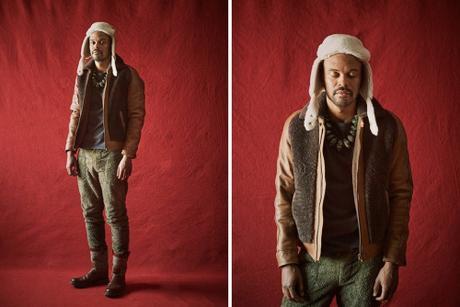
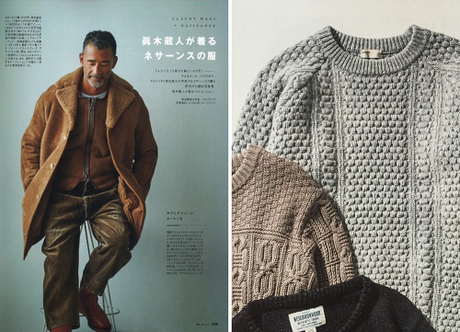
There are a lot of Japanese companies these days doing slightly offbeat takes on Americana, heritage, and workwear. Think of Engineered Garments (workwear with 15x more pockets), Kapital (post-apocalyptic clothes for hippies and drifters), and Visvim (Americana with a streetwear edge).
If you like those sort of clothes, you’ll find a lot to love in Naissance – a niche, Japanese label whose name means “birth” in French. Greg from No Man Walks Alone (an advertiser on this site) introduced them to me earlier this year. We were having dinner in San Francisco, chatting about his recent trips to Japan. When he showed me photos of Naissance’s showroom, I nearly jumped from excitement.
There’s so much to like here: chunky, textured knits, including the cowichan you see at the top of this post; oversized, shearling jeep coats (a WWII design taking after early-century blanket coats); and black suede double riders. My favorite is the slim grizzly jacket you see above, with fuzzy shearling panels and soft leather sleeves. Just odd enough to be fun, but not so rugged to feel like cosplay. You can find the brand later this month at No Man Walks Alone.
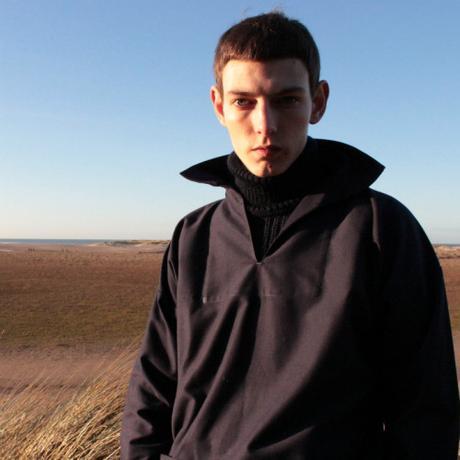
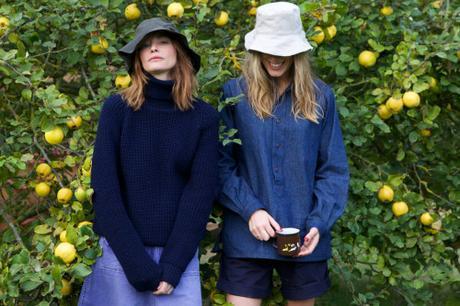
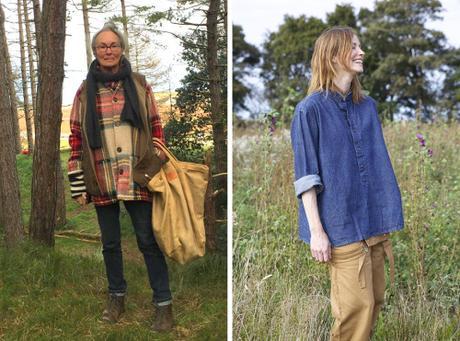
The Carrier Company started with some jute on a roll. Tina Guillory, who was running a gardening business at the time, was wondering what she could make from it. Shortly after, she found herself sketching out the plans for a new clothing company in the dining room of her flint-and-brick farmhouse home, located in England’s Norfolk countryside. This was twenty years ago, and the simplicity of her work has that soft, slow-life charm that still resonates with city-dwellers today.
Everything here is made within ten miles of The Carrier Company’s showroom, using one of the area’s home enterprises. Offerings include the sort of things your gardening mother might appreciate – work aprons and jute bags – as well a range of unisex clothing. I think this chunky turtleneck would look great with a Barbour jacket, and the cotton chore coats with jeans. I also like this Celtic wool jacket, which has big buttons and even bigger pockets. It’ll admittedly make you look like your grandmother, but at least it’s cheaper than this season’s oversized Acne coat (saving money is something grand ma-ma would approve of).
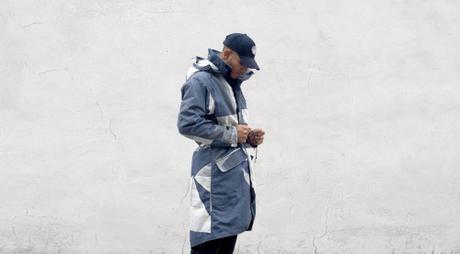
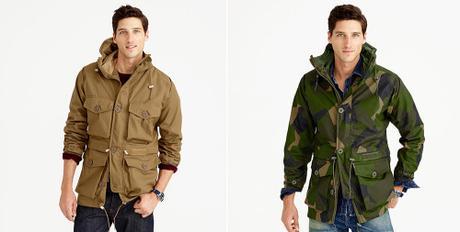
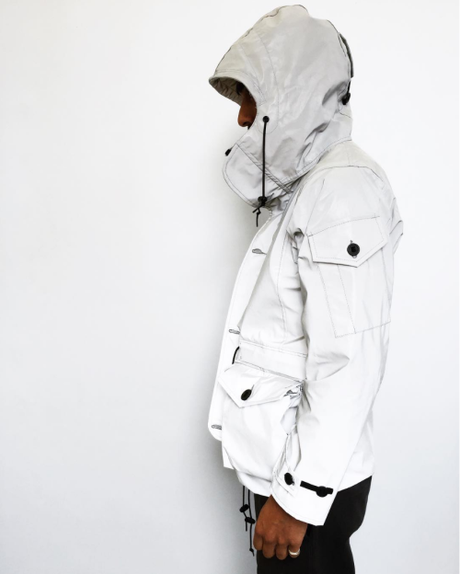
This is where I cheat. ArkAir isn’t really new – they’re the civilian-wing of an old English company, Arktis, which has been providing standard-issue military wear to special forces around the world since 1985. Over the years, they’ve sold to the French Foreign Legion, US Special Forces, Royal Marines, and elite units in Australia. One of the more amusing stories about their clients: they once received an order from Kosovo, where a customer was trying to buy a jacket whilst under sniper fire.
Their civilian ArkAir line isn’t meant for warfare, but they have the same robust construction and military style. The line mostly focuses on fishtail parkas and field jackets, often in blocky camo patterns, but it has a more contemporary feel than what you might pull out of a mil-surp depot. Prices are surprisingly good (relative to what’s out there nowadays, anyway). You can find the them at J. Crew, Kapok, and Present.
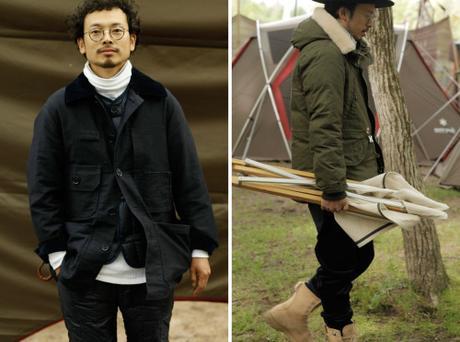
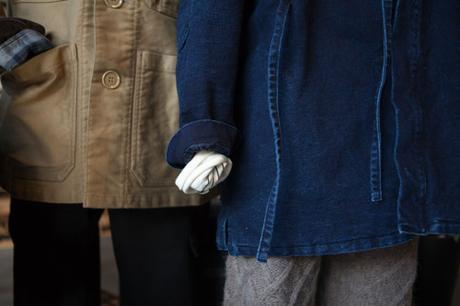
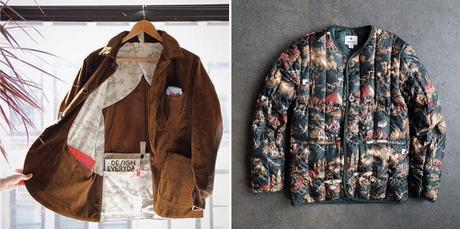
Snow Peak is what I imagine an outdoor lifestyle brand should be. It’s actually an old Japanese company, having started in 1958, but they only got into apparel game in the last few years. So many outdoor companies here in the US make awful-looking clothes (let’s face it, including our much-beloved LL Bean). Snow Peak makes outdoor performance gear with style.
I love the innovative details here – the use of eVent fabrics, which I think is better than Gore-Tex, as well as specialized pockets (just check out that corduroy jacket above). They also have fire retardant, fleece pullovers, which means sparks from that campfire won’t burn holes through your jacket when they land.
Most of all, however, I love the designs. They have these bold, camp-inspired prints that remind me of Ralph Lauren clothes from the 1990s. Their waxed down coat also has a removable sheepskin cuff; their cargo pants look functional without being fratty. This is the sort of company that mixes indigo Japanese cottons with performance textiles, making outdoor clothes that people can wear in the city or country without fear of looking like a suburban dad.
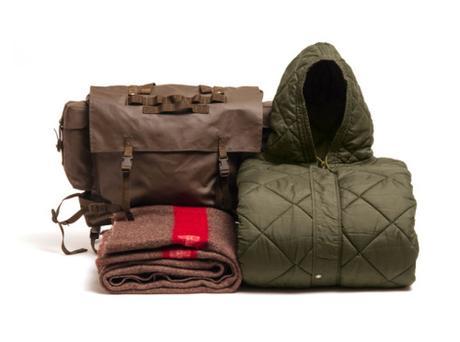
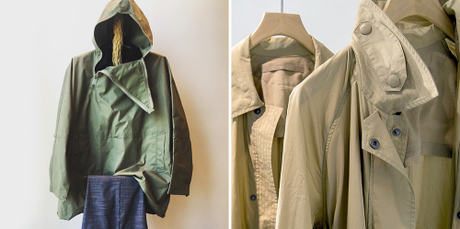
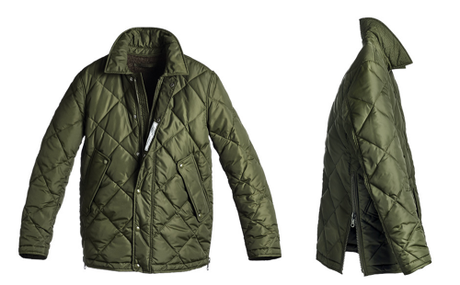
The idea for Sempach is simple: take the materials you’d find in old Swiss Army gear – e.g. field tents, sleeping bags, and wool blankets – and turn them into basic pieces of outerwear. That means pared-down quilted jackets and raincoats, often with size zips being their only noticeable details.
Despite the simplicity of their designs, the coats are made with a bit more thought than they might first reveal. Their canvas raincoat, for example, is made with a snap-out liner, which means you can wear it in one of three ways – with or without the liner, or the liner by itself. The collars also often have throat-latches for particularly foul weather.
Bloomingdale’s has a few of their raincoats this season, but I would first check with Magasin, who carries some of the more interesting styles (I like the smock with a weird zip-up hood above).
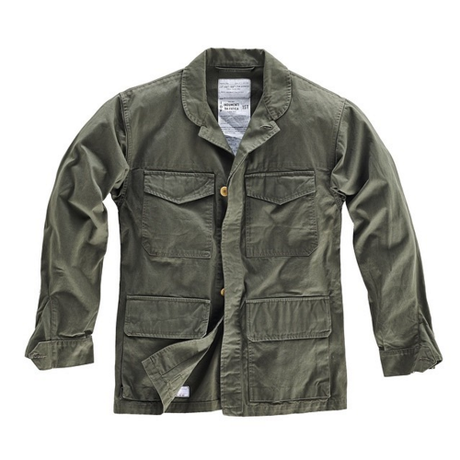
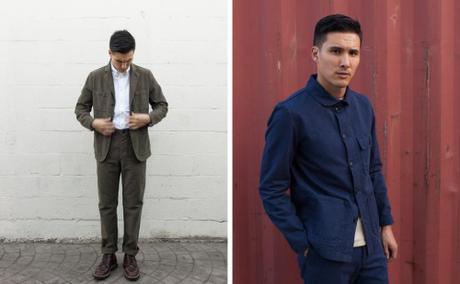
The concept for 1st PAT-RN (pronounced “first pattern”) isn’t necessarily new, but the execution is very good. They’re a contemporary workwear line, but one where all the manufacturing is done in Italy – from yarns to finishing. The unlined sport coats are a bit too slim and short for my taste, but I like the utilitarian jackets and trousers, which draw heavily from old military and workwear designs. The clothes here are simple, but like good comfort food, feel satisfying.
Favorites include the heavy moleskin pants, which would go great with rugged boots, as well as their Campo field jacket (designed with a uniquely rounded collar). If you already have brands such as Nigel Cabourn and Engineered Garments in your closet, these sort of basic, well-executed styles would integrate seamlessly into your wardrobe. You can check them out at Standard & Strange, Kafka, The Bureau Belfast, and Superdenim.
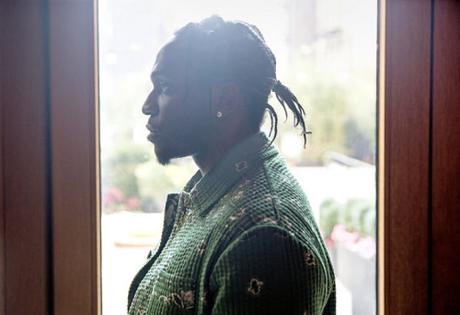
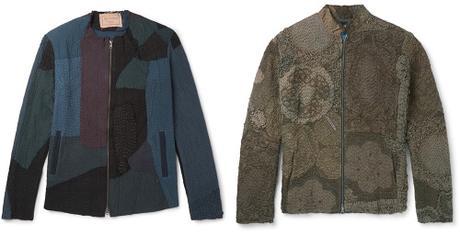
Designers have been borrowing from Japanese boro for years. Blue Blue Japan, DDuGoff, and Kapital all have roughly-made patchwork clothes designed to look like the repurposed rags worn by Japanese farmers. Ralph Lauren has used the same detailing since the ‘90s. Misanthropes will grumble, but shabby chic has an obvious appeal if you think of clothes not just as objects, but also as ideas.
Few people, however, do this better than Walid al Damirji, the creative director behind By Walid. Granted, the clothes here aren’t necessarily things I would wear, but if you appreciate textiles, it’s hard to not get lost in the workmanship.
Whereas other brands mostly rely on basic, indigo-dyed cottons, By Walid is all about vintage fabrics – old silks and intricate embroideries going back as far as the 1800s. The fabrics are cut up, sewn together, and then artfully topstitched for decorative effect. As a result, you get these wearable, one-of-a-kind art pieces: a bomber jacket with a chinoiserie pattern, or overdyed coat with dozens of patchwork colors.
You can see Pusha T and his stylist visit By Walid’s showroom in the video below (it starts at the 7 minute and 40 second mark). Again, not necessarily for me, but on the right guy, this would look tremendous.
